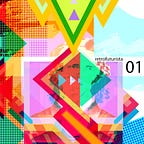Interview with Black Dice
Black Dice is a band known for its experimental noise music, formed in 1997 and consisting of brothers Bjorn and Eric Copeland along with Aaron Warren. Initially inspired by hardcore punk and noise rock, they gradually embraced signal processing and diverse effects in their music. The band’s origins trace back to the Rhode Island School of Design, where Bjorn Copeland met drummer Hisham Bharoocha and bassist Sebastian Blanck. Their early shows were brief, intense, and chaotic, characterized by high-energy performances that captivated audiences despite their physical demands. Bjorn Copeland reflected on these early years, noting the unexpected fun and camaraderie among the band members.
https://www.youtube.com/watch?v=ebLYgVPDORM
In 1998, Black Dice relocated to New York City, marking a pivotal shift in their musical journey. Aaron Warren joined the band, steering them away from their hardcore beginnings towards a more experimental and eclectic sound. This evolution included the integration of various pedals and electronic equipment, which led to influences from rhythmic, motorik, and dub music. Their debut album, “Beaches & Canyons” (2002), represented a significant milestone, highlighting their new focus on atmosphere and texture over traditional song forms. The band’s musical evolution saw a transition from structured compositions to more open-ended and improvised soundscapes.
Throughout their career, Black Dice has released music on several influential labels, including DFA, Fat Cat, and Paw Tracks, the latter operated by their friends Animal Collective. Their live performances, initially known for their high volume and physical intensity, gradually evolved to emphasize the auditory experience. The band’s creative process often involves extensive jam sessions, crucial in shaping their distinctive sound. Their 2012 album, “Mr. Impossible,” continued their tradition of incorporating electronic instrumentation and innovative soundscapes. Their latest release, “Mod Prog Sic,” reflects their ongoing evolution, developed over several years with members living in different cities and collaborating remotely.
How would you describe the atmosphere of the early noise rock and hardcore punk scenes you were part of?
Bjorn Copeland: I would describe it as high energy. The bands we emerged with from Providence were certainly all really high-energy live performers. Even though the music was dissonant and perhaps a bit ugly, it still had a party-like atmosphere. The shows were chaotic and hectic; things could quickly go south, and people could get hurt, which made it exciting. Nobody was trying to make a career out of it, so anything went.
Aaron Warren: When Black Dice was forming, I was living in California and playing with a different band. We were part of a similar DIY punk scene of the mid-’90s in America. We played at houses, community centers, or VFW halls, not at legitimate rock venues. In Southern California, the punk and hardcore movement had become almost conservative. Bands would play with their backs to the audience, and the audience would be seated, not moving at all. This was very different from the punk music I experienced in high school, where anything could happen, and people were jumping around and moving aggressively. When I moved to New York and saw Black Dice at NYU, it was refreshing. The microphone was being swung around like a weapon, and someone could get hurt. That was exciting. It was clear the band wasn’t looking to harm anyone, just to have a wild, thrilling performance, which appealed to me. I thought it was really fun.
What inspired the transition from your hardcore punk roots to a more experimental and electronic sound?
Bjorn Copeland: Many punk and hardcore scenes became rigid with rules, which didn’t interest us. We were also a sloppy band when we played hardcore, and the accidents often sounded better than the actual tunes. We started making music based on accidents or guitar feedback between songs. We were around adventurous bands like Lightning Bolt, Forcefield, and Six Finger Satellite. When we moved to New York, we found ourselves surrounded by another group of adventurous musicians. Our musical education expanded as we began buying different kinds of records, which influenced us. When Aaron lived with us, we’d jam in the apartment, setting the tone for our future work. We had an old Farfisa organ. Our musical evolution took longer than expected because we could only get shows through hardcore promoters. There weren’t many venues for noise shows, so it took longer than we would have liked.
Aaron Warren: It took years. I joined the band in 1999, and it wasn’t until 2001 that people knew what kind of show to expect. Audiences anticipated hardcore music, but we presented no recognizable tunes — nothing fast or aggressive — which left them unimpressed. At that point, I felt too old for punk music. In New York, we had access to a vast array of music that wasn’t available online. Experiencing live shows was a significant influence.
Bjorn Copeland: We weren’t musically skilled enough to rip anybody off. We couldn’t make a band that sounded like Slayer because we couldn’t play that well. We had to figure out what we could do that gave off the same energy as the records or bands we liked, which influenced our evolution.
Read the full interview with Black Dice at Retrofuturista.com
